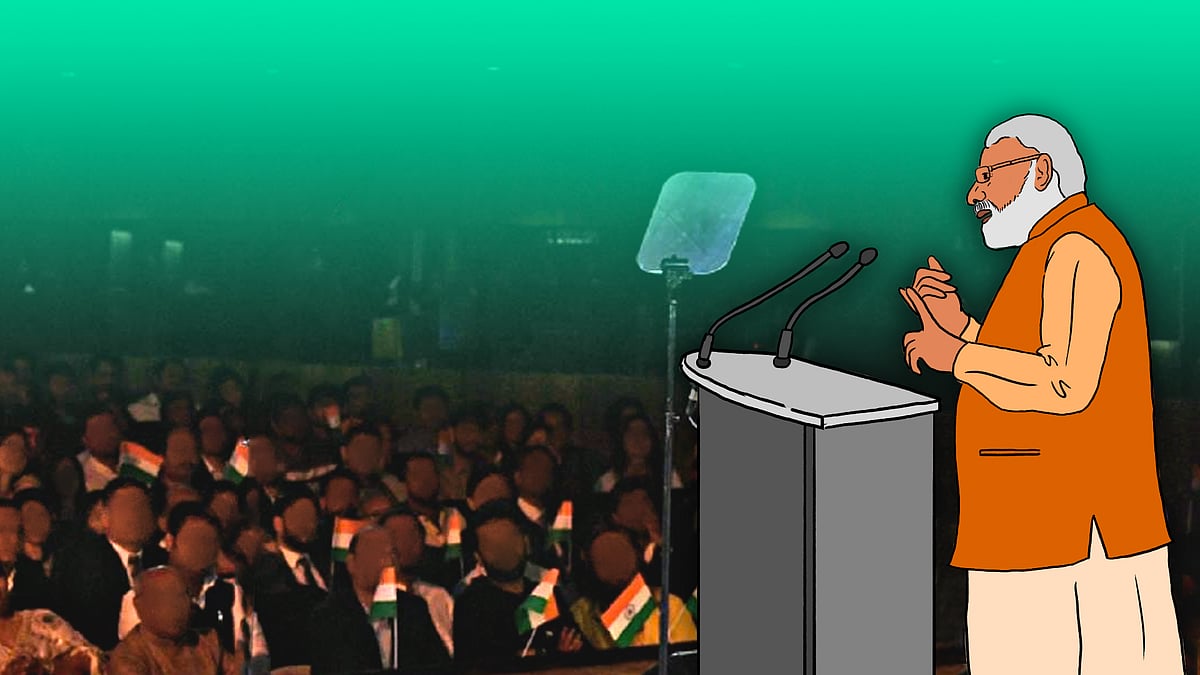40% in US have never heard of Modi, views on India now more negative in 5 European countries: Pew survey
Around seven in 10 in India feel the country has recently become more influential, as per the analysis.
Forty percent in the US have never heard of Prime Minister Narendra Modi, attitudes towards India have turned more negative over time in at least five European countries, and Mexicans and Brazilians are especially critical of Modi’s leadership.
These are among the findings of a new Pew Research Center analysis, which looks into global views on PM Modi, the scope of India’s global power and Indians’ views of other countries ahead of the G20 Summit in New Delhi.
The survey was conducted from February 20 to May 22, among 30,861 adults in 24 countries, including India and countries in North America, Europe, the Middle East, the Asia-Pacific region, sub-Saharan Africa and Latin America.
A median of 46 percent reported favourable views of India, compared to 34 percent with unfavorable views and 16 percent who did not share an opinion at all, according to the report.
On PM Modi, a median of 37 percent said they have confidence in the prime minister to take the right steps in terms of international affairs, while another 40 percent expressed a lack of confidence.
The most positive views on India are in Israel, where 71 percent reported a favourable opinion of the country.
Mexicans and Brazilians were especially critical, with nearly half or more of respondents in the two countries reporting a lack of confidence in Modi. Adults in Argentina, South Africa, South Korea and the United States were also more likely to lack confidence in India’s prime minister, as per the analysis.
However, those in Japan, Kenya and Nigeria were more likely to report confidence in Modi.
Meanwhile, in all five European countries, including France, UK, Spain, Germany and Poland, where past data is available, favourable views of India have declined by roughly 10 percentage points or higher. The most significant change was seen in France, where just 39 percent of adults had a favourable view of India, compared to 70 percent in 2008.
“In Hungary, Australia and Israel, those on the political right report more favourable views of India than those on the left. The opposite is true in the US, where liberals are 10 percentage points more likely than conservatives to hold a favourable opinion of India. Favourable views of India are likewise more common among supporters of some populist parties in Europe. In Greece, supporters of Greek Solution – a right-wing populist party – and supporters of Syriza – a left-wing populist party – are more likely than nonsupporters to hold a favourable view of India. Similarly, supporters of the centrist Five Star Movement in Italy, right-leaning Nationally Rally in France and right-wing Vox in Spain all see India more positively than those who do not support each of these parties. Notably, supporters of these parties are not more likely than nonsupporters to have an opinion on India.”
The survey points to several countries where public opinion on India has turned more negative.
“In Indonesia and South Korea, where opinions of India were last recorded in 2018, favourable views of India have declined by 12 and 6 percentage points, respectively. Among the African and Latin American countries, which were last asked about views of India in 2013, evaluations have become more critical in Brazil (-14 points) and South Africa (-8), but more positive in Mexico (+18) and Nigeria (+15). Views of India have also become critical across some European countries, which were last surveyed about India in 2008.”
What Indians think
Nearly half of Indians, or 49 percent, said US influence across the globe is getting stronger while 41 percent said the same about Russia. Indian views on Chinese influence were more mixed.
Roughly seven in 10 Indian adults held negative views of Pakistan in 2023 – a consistent trend amid strained bilateral ties. The share of Indian adults holding an unfavourable view of Pakistan has never dipped below 60 since 2013.
Meanwhile, around seven in 10 feel India has recently become more influential. This is in stark contrast to a 2022 analysis across 19 nations, where a median of only 28 percent said the same. “In contrast, 19 percent say India has been getting weaker, and 13 percent say its influence has not changed. This question was also asked of 19 countries in 2022, and relatively few overall felt that India’s influence was growing.”
About eight in 10 Indians report positive opinions on Modi, including 55 percent with a very favorable view. Only a fifth of Indians express an unfavourable opinion on Modi in 2023, according to the survey.
It said about 77 percent of those who identify with the governing NDA feel that India’s global influence is on the rise, as compared to 60 percent who don’t identify with the governing alliance. “Men, too, are more likely than women to believe India is getting stronger on the world stage (71 percent again 65 percent, respectively).”
 The unshakeable Modi supporter: How behavioural science can explain Modi’s staying power
The unshakeable Modi supporter: How behavioural science can explain Modi’s staying power